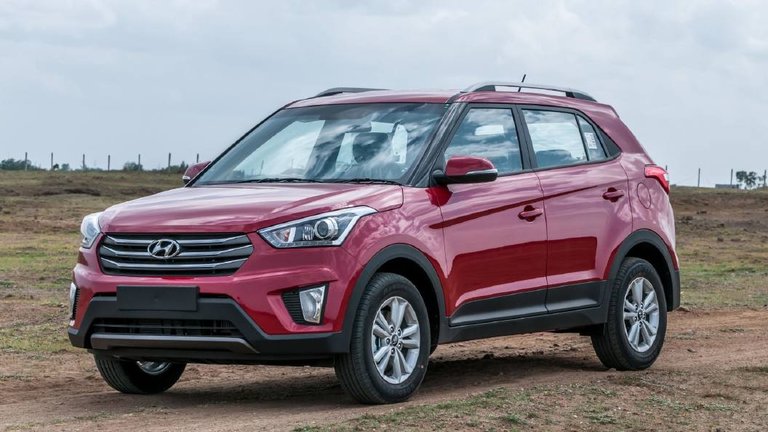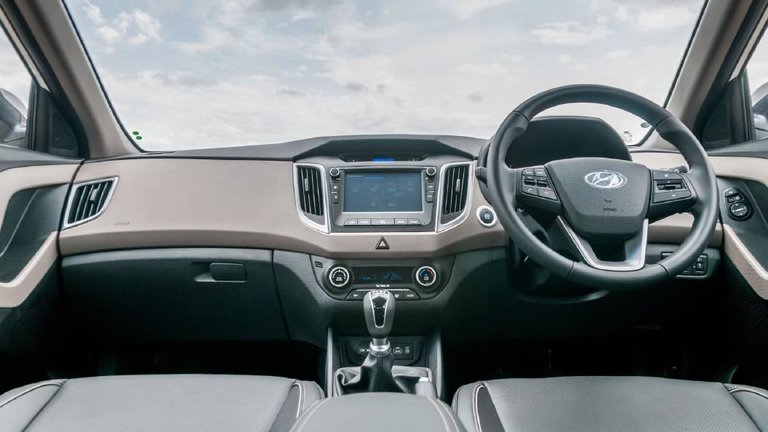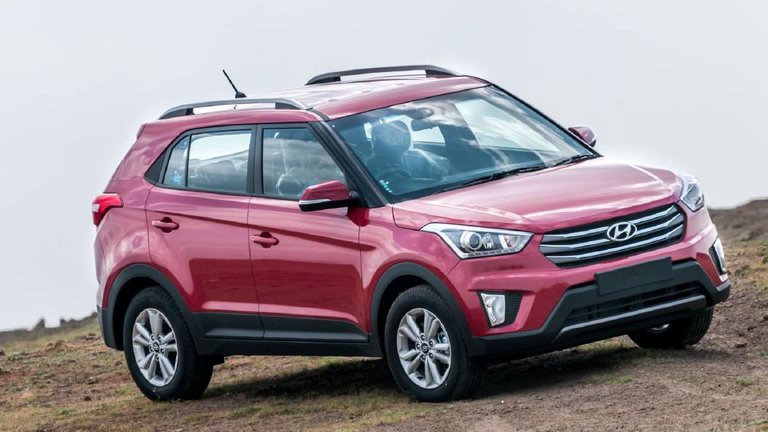
Creta Review
Since its launch back in 2015, Hyundai’s compact SUV, the Creta, has turned out to be a runaway success for the Korean carmaker. It was the highest selling compact SUV in 2016, and averages a healthy 8,000 units in sales every month. Built to take on the likes of the Renault Duster, Nissan Terrano, Ford EcoSport and the Maruti Suzuki Vitara Brezza in India, the MY2017 Creta received a mild cosmetic as well as feature upgrade, in addition to two new trims – the E+ in 1.4-litre diesel and the SX+ dual tone in 1.6-litre in both diesel as well as petrol engines.

The Hyundai Creta looks like a smaller version of the Santa Fe SUV with a hexagonal chrome grille and thick horizontal slats. It uses fluidic design sculpting with edgy lines compared to the rounded styling of the Santa Fe. It has a muscular stance with a wide bonnet, swept back headlamps, blacked out air-dam and innovative vertical fog-lamps with black surrounds. The side profile of the Creta is also similar to that of the Santa Fe, which means the stance is forward-leaning with flared-wheel arches. The rear roofline tapers as it connects with the tail lamps. At the rear, the South Korean automaker has given the Creta a vertically stacked design with each part appearing like a separate section. The first part goes from the spoiler to the base of glass while the second section is from a ridge line at the centre of the hatch door to just above the number plate slot.
Not everyone is going to like the rear profile at first glance, but it is very European and will grow on you in the long run. Hyundai has positioned the Creta as a premium car and the projector headlamps with DRLs, diamond-cut alloy-wheels, bold roof rails and liberal usage of chrome vouch for the same.

On the inside, the Creta´s layout is similar to that of the India-spec Verna sedan. However, where the Verna gets a typical beige interior, the Creta uses all black for a sporty look. The Creta is feature loaded, the top-spec variant gets auto headlamps and wipers, touch-screen music system, navigation, climate control, rear AC vents, keyless entry and a start-stop button. The majority of the line-up gets two airbags, while Hyundai has offered six airbags with the top-end version. Hyundai has used premium soft touch material for the dashboard and the top-end version gets leather seats with contrasting stitching. The rear bench offers enough knee room and headroom, but it is a little cramped when seating three passengers.
Engine wise, the Creta is available with the 1.6-litre petrol engine, along with two diesel engine options – the same 1.4-litre and 1.6-litre four cylinder units from the Verna. The 1.6-litre VTVT petrol engine produces 121bhp and 155Nm of torque powering the front wheels via a six-speed manual transmission. The 1.4-litre diesel uses the same five-speed gearbox and develops 89bhp and 220Nm of torque. The top-spec versions gets the 1.6-litre CRDi engine good to produce best in class 126bhp and 260Nm, which is available with six-speed manual and six-speed automatic transmission. The ARAI efficiency figures of the 1.6 petrol, 1.4 diesel and 1.6 diesel MT and AT are 15.29kmpl, 21.38kmpl, 19.67kmpl and 17.01kmpl respectively.
Hyundai Creta is available across 14 variants with two diesel, one petrol engine and two transmission options. There are seven colours to choose from, with two dual tone schemes as well. However, what with the Duster getting updated, the newly introduced Honda BR-V, the Maruti Vitara Brezza garnering widespread attention, the Creta faces some stiff competition in maintaining its position at the top of the compact SUV segment.
Hi! I am a robot. I just upvoted you! I found similar content that readers might be interested in:
https://www.carwale.com/hyundai-cars/creta/